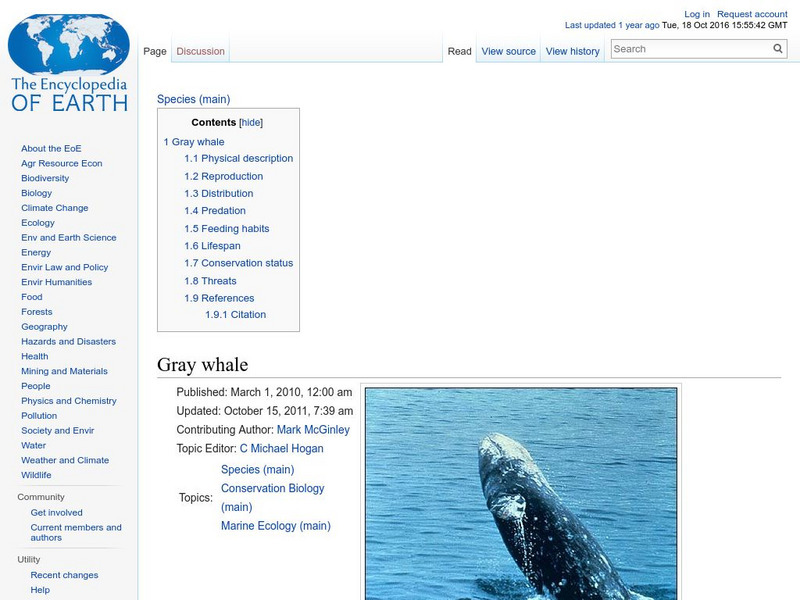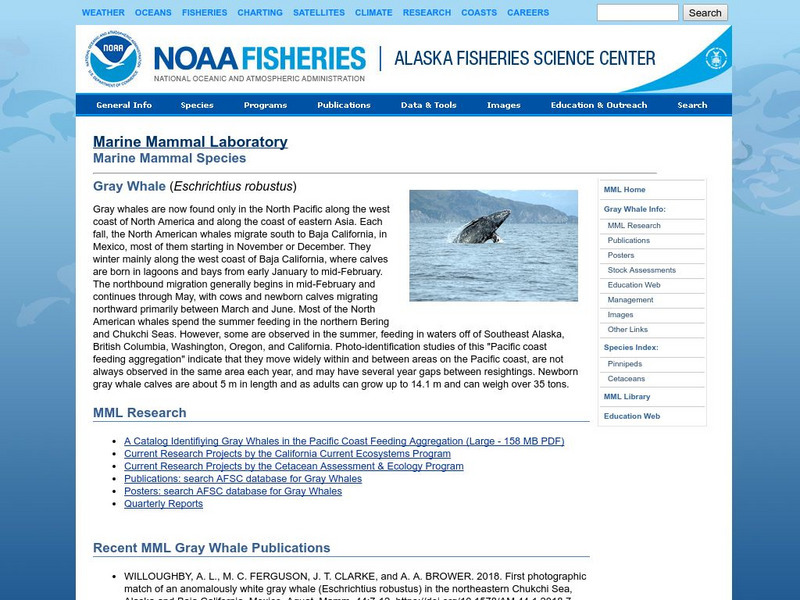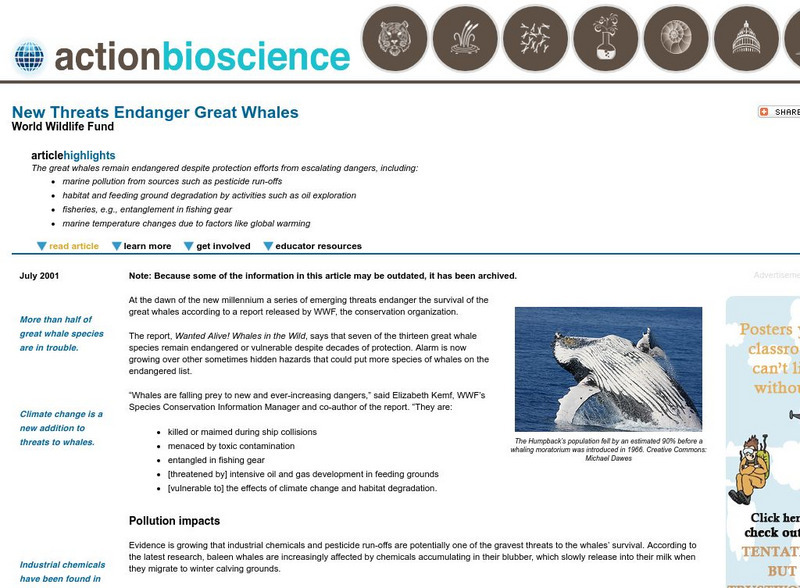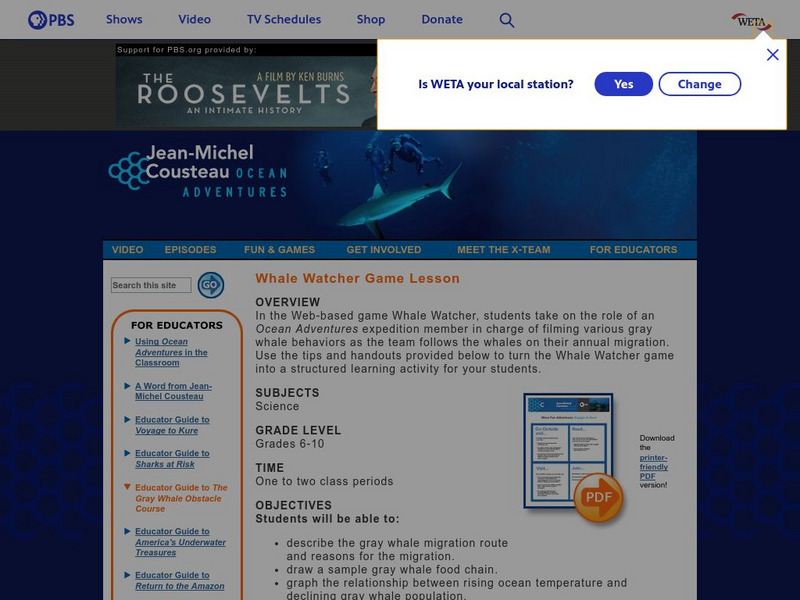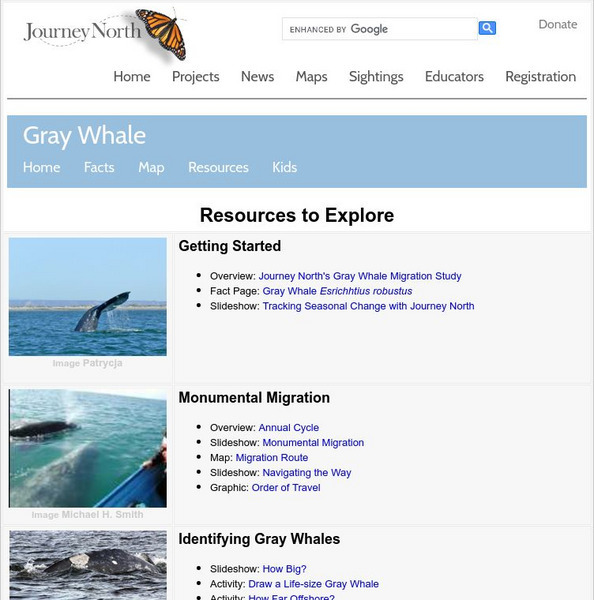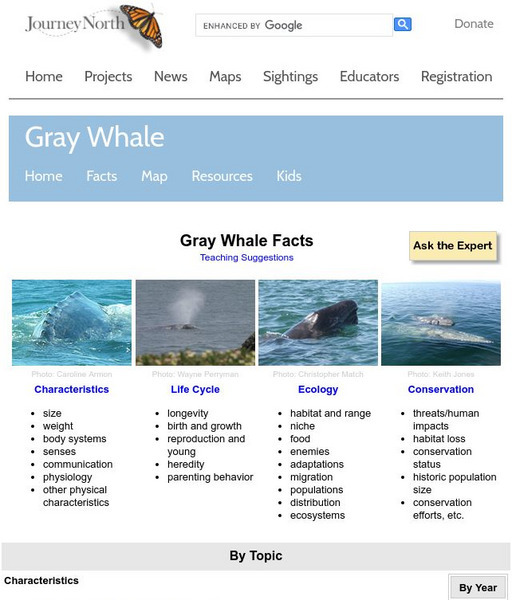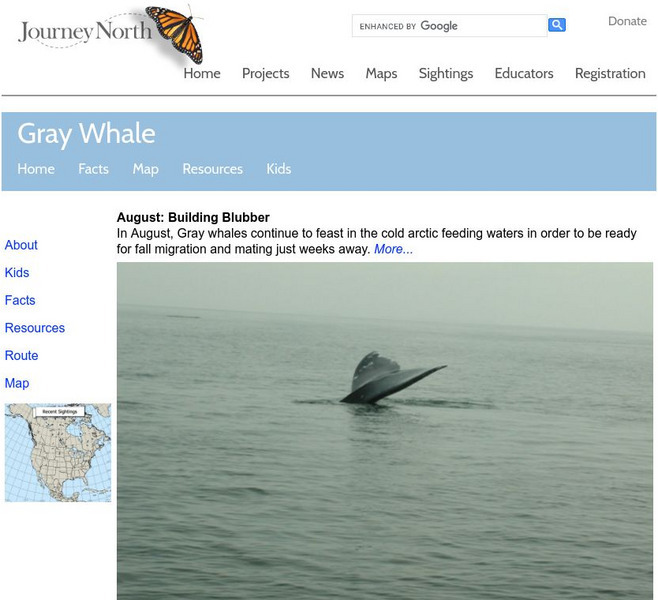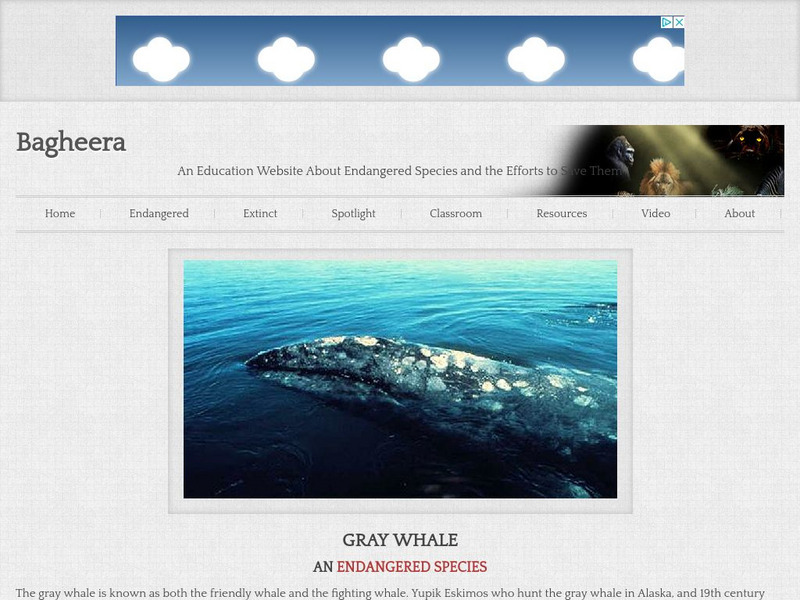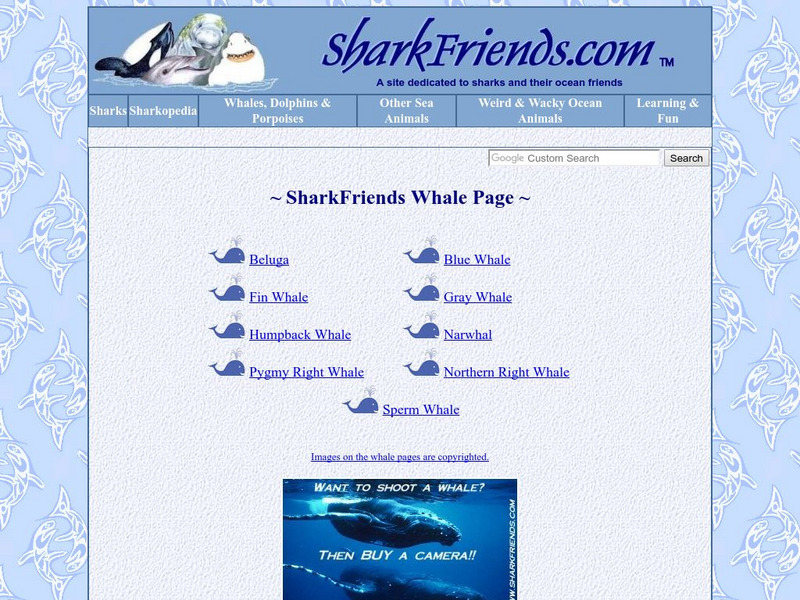Curated OER
Journey North 1999
This is not a lesson plan, but an outstanding resource to provide material for your lessons on seasonal changes and animal migration. Links connect you to live web cams and up-to-date information on Monarch Butterflies, hummingbirds,...
Encyclopedia of Earth
Encyclopedia of Earth: Zoology: Gray Whale
Information about the gray whale: physical characteristics, behavior, reproduction, distribution, threats, species survival status, etc. (Published March 1, 2010)
PBS
Pbs: Whale Watcher
PBS site invites you to join Jean-Michel Cousteau's team as they journey along with a team of gray whales as they make their way to Alaska.
Annenberg Foundation
Annenberg Learner: Journey North: A Global Study of Wildlife Migration and Seasonal Change
Join teachers and students all over the country in observing the migratory patterns of birds and butterflies and the growth changes of plants as the climate changes. "Journey North" offers a wealth of resources to use as you investigate...
NOAA
Noaa: Nmml: Detailed Information About Gray Whales
Your questions about gray whales are answered at this site from the National Marine Mammal Laboratory. Learn where the whales live, what they eat, how they communicate and more.
American Institute of Biological Sciences
Action Bioscience: New Threats Endanger Great Whales
An article addressing new worries of the already endangered population of great whales of the world.
PBS
Pbs: Ocean Adventures: Satellite Tagging Technology
Discover how researchers have been working with whales that have been tagged with radio transmitters to receive information that aids in their research of whale behavior.
PBS
Pbs Teachers: Whale Watcher Game Lesson
Describe the gray whale migration route and graph reasons for the migration. Predict what would happen to gray whales if they did not exhibit certain behaviors. This site also contains an interactive game.
Annenberg Foundation
Annenberg Learner: Journey North: Gray Whales
Take a peek into Journey North's Gray Whale migration study. Learn about characteristics, migration, development, research, and conservation about these enormous marine mammals.
Annenberg Foundation
Annenberg Learner: Journey North: Gray Whales
A comprehensive presentation that answers a number of questions about gray whales. In addition, there are challenge questions, lessons, and activities that can be used in the classroom. the migratory pattern of this whale is also tracked.
Annenberg Foundation
Annenberg Learner: Journey North: Gray Whales
Track gray whale migration. Use live data to observe migration patterns.
Bagheera
Bagheera.com: The Gray Whale
This information about the endangered gray whale covers their range, history, and the many causes for endangerment. There is also quite a bit of information about the conservation effort surrounding these animals.
Other
Save the Whales: Gray Whales
Gray whales are endangered--find out why in this informative and colorful site and learn about gray whale diet, habitat, and other characteristics.
Enchanted Learning
Enchanted Learning: All About Whales
This site provides a great deal of information about whales.
Other
Shark Friends Whale Page
Dive down deep with these creatures and learn more about them without leaving your computer. Site contains information on different types of whales such as gray, northern right, fin, blue and other species.
Other
Ocean Oasis: Field Guide
Ocean Oasis is a giant-screen film that depicts Mexico's Sea of Cortes and the Baja California desert. This companion site features much of the information the film has, such as beautiful images of animals, water, and land that have...
Defenders of Wildlife
Defenders of Wildlife: Fact Sheets
Here you can find fact sheets on over 50 species of animals. Find an animal by where it lives in the world, and learn all about it.
MarineBio Conservation Society
Marine Bio: Gray Whale
Discover useful information about gray whales including description, behavior, range, habitat, diet, breeding, and conservation status.
NOAA
Noaa: Ocean Facts on Marine Mammals
The National Oceanic & Atmospheric Administration sponsors this introductory article and related links that tell why marine mammals are valued by the public for their great aesthetic, recreational and economic significance.
Smithsonian Institution
National Museum of Natural History: American Mammals: Gray Whale
Gray whales are bottom feeders. They roll to one side and lower the lip to scour and siphon the bottom for tiny crustaceans, especially amphipods which are known as "sand fleas." Learn more about the Eschrichtius robustus, more commonly...



